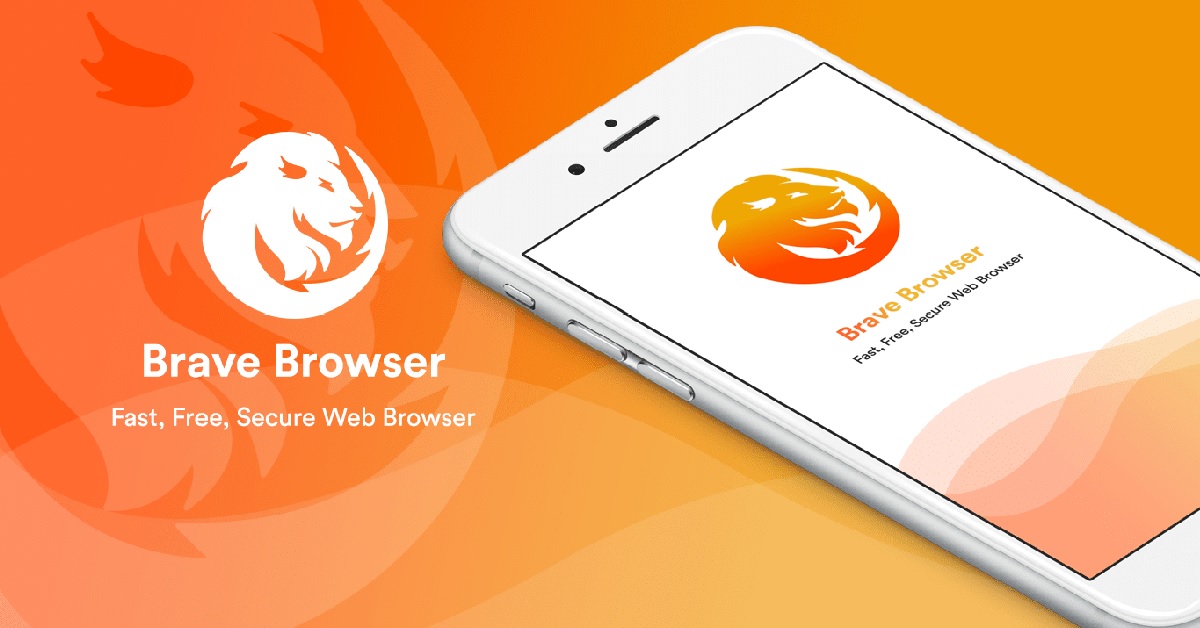
The internet is populated with Ads. Most of the publishers have incorporated Ads in their websites to make an earning out of it. Well, this sort of digital advertisements might be profitable for the publishers and advertisers; it’s usually annoying for the users. But what if you get paid for all the Ads you see while surfing the internet? That would surely be a dream come true. And making many of our dream come, a new browser has emerged on the internet. Brave browser, a privacy-based platform pays a fraction of its revenue to its users.
The browser was firstly designed to eliminate the advertisements, which pop up while perusing the internet. But the platform is now luring to the users by compensating for the Ads they saw during the use. Under this feature, users can get 70% of the Ad revenue if they choose to see the Ads. The payments will be made through the crypto tokens when they interact with the Ads. This revenue tokens or the Basic Attention Token (BAT) is provided to the users on a monthly basis.
Crypto tokens may not be usable for the most. But it has been said that these kinds of reward tokens can also be exchanged with items like restaurant vouchers, gift cards, and also the real money.
Apart from issuing Ads and rewarding the users for the interaction, the browser also promises privacy in users’ information. Brave has pledged that it will not give out the user information to other parties. The company says it issues Ads based on the users’ browsing habits and the previous Ads interactions. Brave has currently collaborated with 250 Ad sponsors and those who agreed to see the Ads will see Ad from one of these sponsors.
This is actually an attractive concept and sounds profitable for both the advertisers and the users. Users get rewards whereas the advertisers get sales and brand recognition. But this platform has kept the publishers worried since its use could topple their ad-supported business models.
















![Best Ultrabooks To Buy in Nepal 2024 [Updated] Best Ultrabook Laptops in Nepal 2023 - June Update](https://cdn.gadgetbytenepal.com/wp-content/uploads/2023/04/Best-Ultrabook-Laptops-in-Nepal-2023-June-Update.jpg)
![Best Gaming Laptops in Nepal 2024 [Updated] Best Gaming Laptops in Nepal 2023 - June Update](https://cdn.gadgetbytenepal.com/wp-content/uploads/2023/04/Best-Gaming-Laptops-in-Nepal-2023-June-Update.jpg)


![Best Mobile Phones Under Rs. 15,000 in Nepal [Updated] Best Phones Under 15000 in Nepal 2024 Budget Smartphones Cheap Affordable](https://cdn.gadgetbytenepal.com/wp-content/uploads/2024/03/Best-Phones-Under-15000-in-Nepal-2024.jpg)
![Best Mobile Phones Under Rs. 20,000 in Nepal [Updated] Best Mobile Phones Under NPR 20000 in Nepal 2023 Updated Samsung Xiaomi Redmi POCO Realme Narzo Benco](https://cdn.gadgetbytenepal.com/wp-content/uploads/2024/01/Best-Phones-Under-20000-in-Nepal-2024.jpg)
![Best Mobile Phones Under Rs. 30,000 in Nepal [Updated]](https://cdn.gadgetbytenepal.com/wp-content/uploads/2023/12/Best-Phones-Under-30000-in-Nepal-2024.jpg)
![Best Mobile Phones Under Rs. 40,000 in Nepal [Updated] Best Phones Under 40000 in Nepal 2024 Smartphones Mobile Midrange](https://cdn.gadgetbytenepal.com/wp-content/uploads/2024/02/Best-Phones-Under-40000-in-Nepal-2024.jpg)
![Best Mobile Phones Under Rs. 50,000 in Nepal [Updated] Best Phones Under 50000 in Nepal 2024 Smartphones Midrange](https://cdn.gadgetbytenepal.com/wp-content/uploads/2024/02/Best-Phones-Under-50000-in-Nepal-2024.jpg)
![Best Flagship Smartphones To Buy In Nepal [Updated] Best Smartphones in Nepal 2024 Flagship Premium Samsung Apple iPhone Xiaomi OnePlus Honor](https://cdn.gadgetbytenepal.com/wp-content/uploads/2023/09/Best-Smartphones-in-Nepal-2024.jpg)